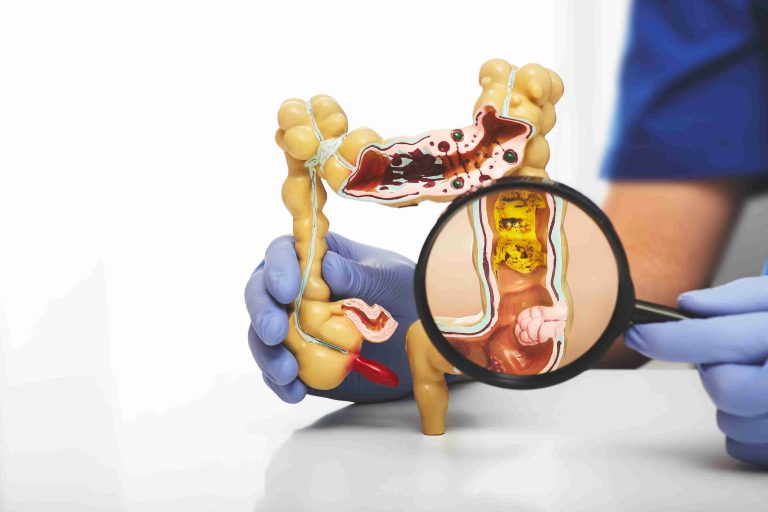Functional Abdominal Pain Syndrome (FAPS) is a chronic condition that often puzzles both patients and doctors. It presents with ongoing or recurrent abdominal discomfort that cannot be linked to an identifiable structural or biochemical abnormality.
Unlike other gastrointestinal disorders where symptoms have a clear cause—such as ulcers, infections, or inflammation—Functional Abdominal Pain Syndrome exists in a category of its own, often requiring a nuanced and multidisciplinary approach to diagnosis and management.
Understanding this syndrome requires delving into the complex relationship between the brain and the gut, recognizing how pain perception is processed, and appreciating the psychological factors that often accompany this condition.
What Is Functional Abdominal Pain Syndrome?
FAPS is characterized by chronic abdominal pain that is typically constant or nearly constant. The key distinction is that the pain cannot be explained by typical diagnostic tests like blood work, imaging, or endoscopy. Despite thorough investigations, no underlying disease is found.
The condition is part of a broader group of disorders known as disorders of gut-brain interaction (DGBIs), which also includes irritable bowel syndrome (IBS). While IBS may involve changes in bowel habits and digestion, FAPS is unique in that the pain stands alone as the primary symptom, without consistent links to eating, bowel movements, or other digestive functions.
How FAPS Differs from Other Digestive Disorders
One of the most frustrating aspects for patients is being told that “nothing is wrong” when they are clearly experiencing real discomfort. In functional abdominal pain syndrome, the pain is not imagined—it is very real—but it stems from abnormal pain processing within the nervous system rather than from a visible lesion or inflammation in the gut.
Unlike peptic ulcers or gallstones, which show up clearly on diagnostic scans, FAPS does not present with visible signs. What distinguishes it further is that the pain is often non-localized and doesn’t change much with meals, position, or bowel activity.
This makes it different from other forms of abdominal pain, such as those from inflammatory bowel disease, which usually come with physical findings, weight loss, or blood in stools. In FAPS, the discomfort exists despite the absence of these markers.
The Role of the Brain-Gut Axis
Central to understanding FAPS is the concept of the brain-gut axis—a two-way communication system between the gastrointestinal tract and the central nervous system. In FAPS, it’s believed that this connection is disrupted. The brain becomes overly sensitive to signals from the gut, or the gut sends amplified pain signals to the brain.
This dysfunctional communication leads to a state of visceral hypersensitivity, where normal gut sensations are perceived as painful. Even minor digestive activity can trigger severe discomfort due to how the nervous system interprets the signals.
In many cases, emotional stress, anxiety, or past trauma may exacerbate the pain. This does not mean the condition is purely psychological, but it does indicate that mental health plays a critical role in symptom expression and management.
Common Symptoms and Patterns
Patients with FAPS typically describe a dull, aching, or cramping sensation in the abdomen that does not follow a predictable pattern. The pain may be constant or fluctuate throughout the day but rarely disappears completely.
Unlike IBS, there is no consistent relationship between the pain and bowel movements. Patients might also report associated symptoms such as fatigue, poor appetite, and sleep disturbances. Importantly, these symptoms are not due to malabsorption, obstruction, or infection but rather to the complex interplay of nerves and emotional factors.
The unpredictability of the pain and its persistence can lead to frustration, anxiety, and even depression, compounding the difficulty of managing the condition.
Diagnosis by Exclusion
Since FAPS lacks a specific diagnostic test, it is considered a diagnosis of exclusion. This means that a doctor must first rule out all other possible causes of abdominal pain through a thorough history, physical examination, and appropriate diagnostic testing.
These may include:
- Blood tests to rule out infections or inflammation
- Imaging studies such as ultrasound or CT scans
- Endoscopic evaluations to check for ulcers or other gastrointestinal lesions
- Stool tests to rule out infections or bleeding
Once these evaluations come back normal and the symptom profile fits, the diagnosis of FAPS may be considered. It is essential for patients to understand that the absence of physical findings does not invalidate their pain—it simply redirects the focus to how the pain is being generated and processed by the nervous system.
Management Strategies
Managing FAPS often requires a combination of approaches that target both the body and the mind. Since no single treatment works for everyone, care plans are usually individualized.
Cognitive Behavioral Therapy (CBT) has been found to be particularly effective. This form of psychological counseling helps patients understand and change the thought patterns and behaviors that can worsen pain perception. It can also reduce the anxiety and catastrophizing that often accompany chronic conditions.
Medications may also play a role. Low-dose tricyclic antidepressants (TCAs) are commonly prescribed, not for depression, but because they help alter pain perception in the brain. Other drugs that target nerve pathways, such as gabapentin or pregabalin, may also offer relief.
In addition, mind-body techniques like mindfulness meditation, yoga, and deep breathing exercises can support overall well-being and reduce symptom intensity. For some patients, dietary modifications may help, even if food isn’t a direct trigger, by reducing general gastrointestinal discomfort.
Supporting the Patient Journey
Living with chronic pain without a clear diagnosis can feel isolating and invalidating. Many patients with FAPS have seen multiple doctors, undergone numerous tests, and still lack a satisfying explanation for their symptoms. This can lead to frustration, skepticism about the healthcare system, and even reluctance to seek further help.
It’s important for clinicians to validate the patient’s experience and clearly explain the nature of functional disorders. By shifting the conversation from “we can’t find anything wrong” to “we understand this as a brain-gut communication disorder,” providers can offer reassurance and constructive pathways forward.
Education and a strong therapeutic relationship are cornerstones of managing FAPS. Patients who understand the nature of their condition are more likely to engage with treatment and see meaningful improvements in quality of life.
Long-Term Outlook
Although FAPS can be a persistent condition, it is not life-threatening. With appropriate care, many patients experience significant relief over time. However, because it is a chronic syndrome, flare-ups can occur, especially during times of stress or illness.
Ongoing support, regular follow-up, and adjustments to the care plan are often necessary. Encouragingly, with increased awareness of functional gastrointestinal disorders and advances in neuromodulatory therapies, outcomes for FAPS continue to improve.
Conclusion
Functional Abdominal Pain Syndrome remains a challenging condition due to its invisible nature and the complexities of the brain-gut axis. Yet, it is also a reminder of how intricately connected our physical and emotional health can be.
By moving beyond outdated perceptions and embracing a more holistic understanding of chronic abdominal pain, patients and providers alike can shift toward more compassionate, effective care. With the right combination of therapies, lifestyle support, and open communication, individuals living with FAPS can reclaim a sense of control over their symptoms and their lives.







